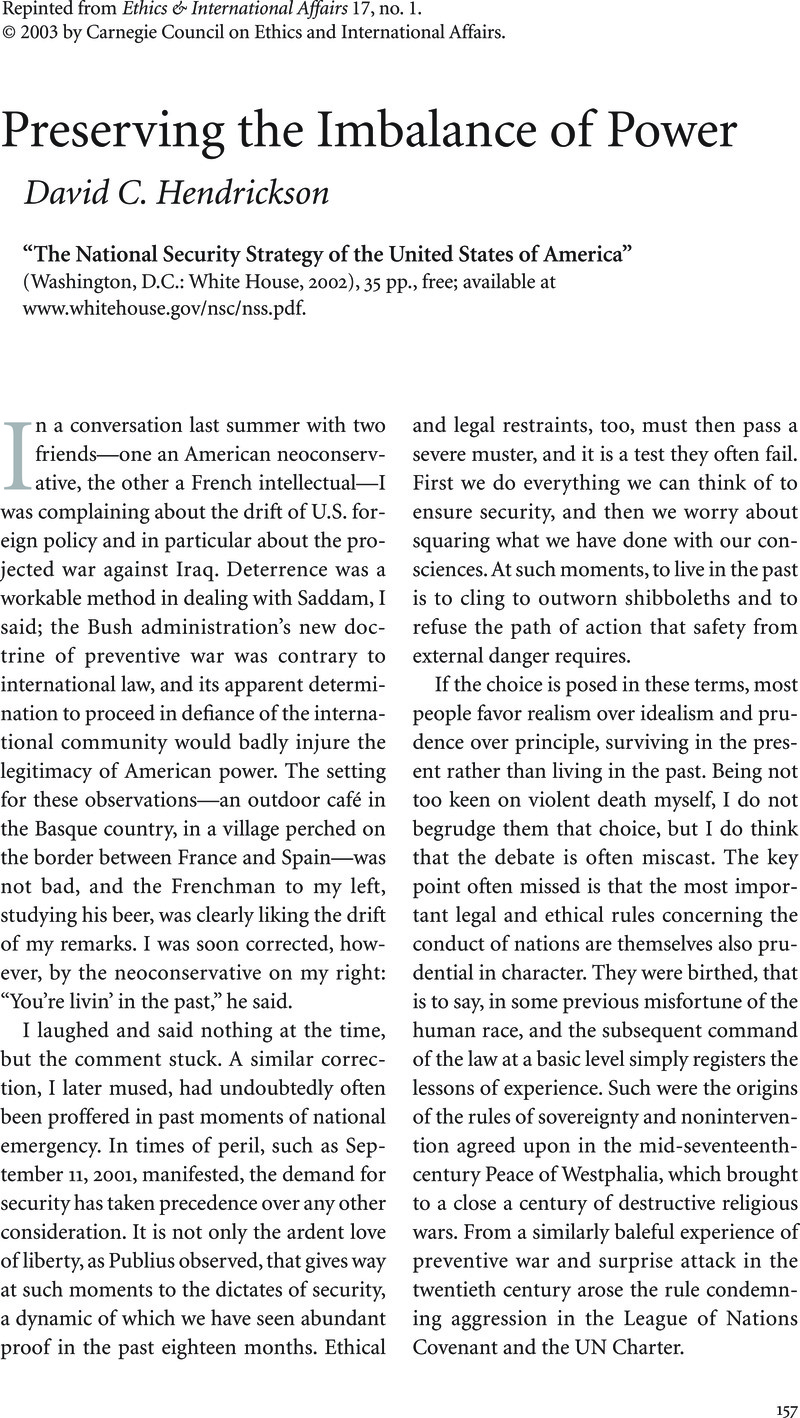Article contents
Preserving the Imbalance of Power
Review products
Published online by Cambridge University Press: 28 September 2012
Abstract

- Type
- Review Essays
- Information
- Copyright
- Copyright © Carnegie Council for Ethics in International Affairs 2003
References
1 “Remarks by President George W. Bush at 2002 Graduation Exercise of the United States Military Academy, West Point, New York,” June 1, 2002; available at http://www.whitehouse.gov/news/releases/2002/06/200201.601–3.html.
2 François de Salignac de la Mothe Fénelon, “On the Necessity of Forming Alliances, Both Offensive and Defensive, Against a Foreign Power which Manifestly Aspires to Universal Monarchy,” excerpted in Moorhead, Wright, ed., Theory and Practice of the Balance of Power, 1486—1914: Selected European Writings (Totowa, N.J.: Rowman & Littlefield, 1975), p. 40Google Scholar.
3 Alexander, Hamilton, “The Warning,” excerpted in Arnold, Wolfers and Laurence W, Martin, eds., The Anglo-American Tradition in Foreign Affairs: Readings from Thomas More to Woodrow Wilson (New Haven: Yale University Press, 1956), p. 145Google Scholar.
4 Edmund, Burke, “Three Letters to a Member of Parliament on Proposals for Peace with the Regicide Directory of France,” excerpted in Wolfers and Martin, eds., The Anglo-American Tradition in Foreign Affairs, p. 118Google Scholar.
5 This is the final passage in Woodward, Bob, Bush at War (New York: Simon & Schuster, 2002), p. 352Google Scholar, quoting an unidentified American in a makeshift memorial service in Afghanistan for the victims of September 11.
- 4
- Cited by


